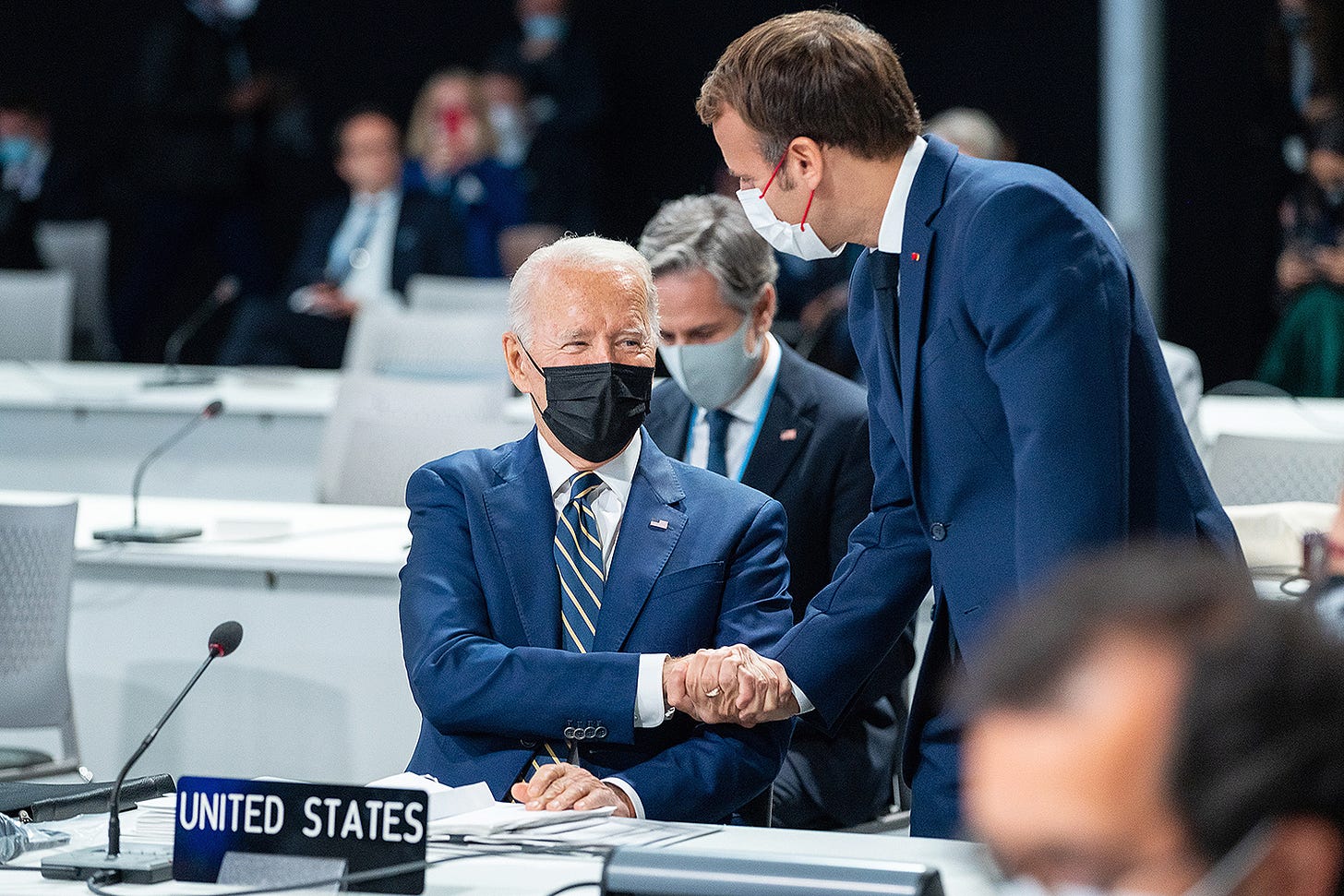Responding to American Protectionism Has Downsides for Europe
Joe Biden’s “buy American” policy is a threat, but matching protectionism with protectionism is worse.

Europe has no good options to respond to American subsidies for green energy and electric cars.
Politicians are right to worry that the tax breaks and buy-American provisions of the Inflation Reduction Act, coupled with high energy prices due to the war in Ukraine, could convince European companies to make the jump across the Atlantic.
But duplicating American protectionism would make things worse.
What is the Inflation Reduction Act
The Inflation Reduction Act (IRA) isn’t really about reducing inflation. It is a $369 billion law that does everything from lowering drug costs for retirees to raising spending on nuclear power plants.
The IRA includes tax credits for electric cars and offshore wind farms. To qualify, companies must source their materials almost entirely in the United States — “buy American”. The sourcing requirements for electric cars are so strict that not a single vehicle currently on the market would meet them.
The hope is that the IRA will cut American greenhouse gas emissions by 31 to 44 percent in 2030 compared to 2005.
It is partially funded by a 15-percent minimum tax on the largest corporations.
Why Europe is worried
In proportional terms, the IRA is worth half the clean-energy subsidies of Europe. The tax breaks and subsidies, spread over ten years, aren’t the main worry.
It’s the buy-American rule, which could have lasting consequences. American manufacturers of electric cars and wind turbines could stop importing European parts. European companies may even relocate factories to the United States.
What are Europe’s options
Europe has broadly three options to respond:
Create a European “sovereignty fund” to match the IRA, modeled on the EU’s coronavirus recovery fund.
Lift or relax restrictions on state aid.
Declare a buy-European preference in public procurement.
Germany, the Netherlands and other Atlanticist and free-trading nations are wary of all three options. Especially the first two, and especially if EU subsidies are funded by eurobonds: shared European debts. They agreed to joint funding of the COVID-19 recovery fund on the condition that it would be a one-off. Shockingly, high-debt nations in the south of Europe consider it a precedent.
All three options have downsides
Keep reading with a 7-day free trial
Subscribe to Atlantic Sentinel to keep reading this post and get 7 days of free access to the full post archives.



